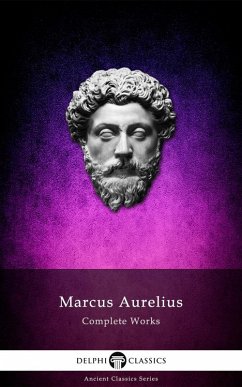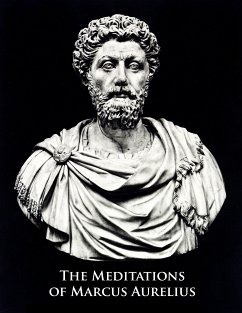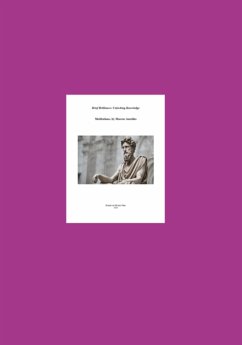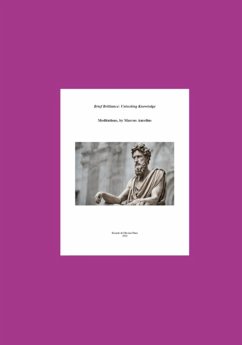
Thoughts of Marcus Aurelius (eBook, ePUB)
Enriched edition. Reflections on Stoic Wisdom and Roman Virtue
Kommentar: Holbrook, Mallory / Redaktion: Good Press / Übersetzer: Long, George

PAYBACK Punkte
0 °P sammeln!
Marcus Aurelius' "Thoughts of Marcus Aurelius" presents a profound exploration of Stoic philosophy, encapsulating the personal reflections of one of Rome's most enlightened emperors. Written in a contemplative diary format, the text delves into themes of virtue, self-discipline, and the nature of existence, showcasing Aurelius' introspective grappling with the moral complexities of leadership and personal integrity. The work exemplifies the literary style of philosophical meditation, reflecting the Hellenistic context in which it was composed, bridging the gap between grand political duty and ...
Marcus Aurelius' "Thoughts of Marcus Aurelius" presents a profound exploration of Stoic philosophy, encapsulating the personal reflections of one of Rome's most enlightened emperors. Written in a contemplative diary format, the text delves into themes of virtue, self-discipline, and the nature of existence, showcasing Aurelius' introspective grappling with the moral complexities of leadership and personal integrity. The work exemplifies the literary style of philosophical meditation, reflecting the Hellenistic context in which it was composed, bridging the gap between grand political duty and intimate personal turmoil. Marcus Aurelius, not only a ruler but also a philosopher, was deeply influenced by the Stoicism of his era, drawing upon the teachings of earlier philosophers like Epictetus and Seneca. His unique position as a military leader during tumultuous times further shaped his meditative approach to life's adversities, emphasizing resilience and rationality. This synthesis of personal experience and philosophical inquiry is what makes his thoughts resonate even today, serving as timeless guidance for the contemplative mind. I highly recommend "Thoughts of Marcus Aurelius" for anyone seeking profound insights into human nature and the practice of self-reflection. Both a historical artifact and a source of wisdom, this book encourages readers to cultivate inner peace amid external chaos, inviting them on a journey of philosophical discovery that transcends the ages. In this enriched edition, we have carefully created added value for your reading experience: - A succinct Introduction situates the work's timeless appeal and themes. - The Synopsis outlines the central plot, highlighting key developments without spoiling critical twists. - A detailed Historical Context immerses you in the era's events and influences that shaped the writing. - An Author Biography reveals milestones in the author's life, illuminating the personal insights behind the text. - A thorough Analysis dissects symbols, motifs, and character arcs to unearth underlying meanings. - Reflection questions prompt you to engage personally with the work's messages, connecting them to modern life. - Hand-picked Memorable Quotes shine a spotlight on moments of literary brilliance. - Interactive footnotes clarify unusual references, historical allusions, and archaic phrases for an effortless, more informed read.
Dieser Download kann aus rechtlichen Gründen nur mit Rechnungsadresse in A, B, BG, CY, CZ, D, DK, EW, E, FIN, F, GR, H, IRL, I, LT, L, LR, M, NL, PL, P, R, S, SLO, SK ausgeliefert werden.













